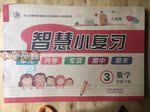��Ŀ����
����Ŀ���Ķ���������֣�������⡣
�����Ľ���
������
��ʫ�����в����ԣ����ʣ���ֱ��Ŀ���ǡ����ϡ��������������ǿ�ҵ�ƫ�������������������������ĵ�ӡ�������������ζ���ôͤ�����£�����Ҳ��ô�ö�����������ʱ��һ�ε����ݣ����ǶԽ��ϵ������ӡ��������������˿�����ĵ����������и�ĸ��ů��˫�֡������Ǿ��õ����ɽ�����
����˵������ʷ�ϡ��ӻ����꽭�ϡ��ܲ��ǡ���������������Ķ��֣�������Ϸ�һ�δΰܸ����µı�����������������������������������ɽ������������ˣ�ҲҪ���Ž��ϣ��粽���룬�������ӡ�
����ǵõ��ǰ��ġ����Ϻá��������Ϻã��羰�����ϡ��ճ�������ʤ�𣬴�����ˮ���������ܲ��佭�ϣ������ǹ��ڽ���������㡢�������Ĺ�档����Ũ���������Τׯ�ġ����������������˾�˵���Ϻã�����ֻ�Ͻ����ϡ���ˮ�����죬���������ߡ���������£������˪ѩ��δ��Ī���磬������ϳ���������д�����ϵ����飬������Ѿ����������С����εİ����ˡ���ζ���������ߵ��ǻʸ��ɵġ��佭�ϡ����������䣬���ϰ��콶�����ν���÷���գ�ҹ�����������죬��������š���
����������Ĺ����£����������˽�ͼ��������ߣ�ʫ���μ��˽��ϡ�÷�ӻ����ʱ�ڣ�ҹ�����죬ʫ��(������)�ڴ��ϴ��ŵ��ӣ����ϴ����͵͵���ٯ������Ǹ�������������ˮ�������磬����ů����꣬�����������¡����ǻ�������ʫ����Ҳ���ξ���
�����������ʹ���������ᡢ��ǣ���ӣ��ǻ������Գơ������������ǽ����ƺ�����ǡ��������ġ�
������ʹ�˷���ǰ;���������ġ���˵���㿰�ڣ������磬��ӥ��δ��(��ˮ������)���ᵽ�ļ�ӥ�������ź��������ˡ�����˵���ʶ��ƪ��˵��������Ϊ�٣����������˼����ݻ�˸��������ڣ���˵�������������������������ǧ����Ҫ���������������Ϲ顣�����������ݻ��֮˼�ĵ�ʡ�
��������֪������һ���������ƵĴ����������Ľ�ڣ�����˭�ܷ��ϣ�ݻ��֮˼��Ҳ���ź�������ԭ��֮һ����Ϊ��ʼ�����ţ�������Ϊ���Ե��ܾ�֮�أ���������������������ƽϢ���������������;���õ����ԡ����̰Ѹ���������dz��ͳ�����������ѡ�����һ���汾�����������ѡ�
������ʹ�˷��µ��ꡢ������������ٵ�һƪ����²�֮�顷����һƪ�н��飬д���IJ��Ȼ���龰���ڣ��������ң���ĺ�����£����ϲݳ����ӻ�������Ⱥݺ�ҷɡ����ʹ�֮��ģ���ƽ���ڳ��գ����ҵ�������ޣ����ӱ���κ�ij²�֮���ˣ��ֵ���ס��˼�Ĺ��ƣ��ʰ�ǧ������������˵������ѧ��ʤ��������˵�ǽ��ϵ�ʤ����
�������ǽ�ɽ��ɫ������Ϳ̿��Ե�������ġ��������������ϵķ�����д����ʮ�֣���������ʤ�����ⶼ�ᣬǮ���Թŷ���������������ӣ�ʮ��ɻ���������˵�����������������״ʣ�Ľ����ʤ���������˻ӱɽ���������ɽ֮�⡣�Ҳ����ɽ�������������������������������֮�ģ����ǽ������ĸ��𣬹�����һ�״ʣ�δ��������춫������˵�ù��ʣ���˵������һ�ʵ�Ӱ����������֣�ԭ�����ţ����ڴ˿���˵�����״����֮��������֮�㡣(���й�������ѧ��Ʒѡ��)��
�����ⶼ��ǰ�������ˡ���������ֻ�ǹ��ڽ��ϵ�������ӽ̾��ֻ�ǹ��ڽ��ϵ�ǧ�Ŵ�˵�����ϣ���һ���Ļ��Ŀռ䣬һ�����ԵĿռ䣬���й�����Զ���ξ��������������ȥ����ʵ�еIJ��ࡢ���������е�ȱ����ֻ����ɽ��ˮ�㣬�ݳ�ݺ�ɣ����Ӽ��ˣ����Ƽ���������Ȼ��Щ�����������̲������Ѿ�ȥ�ú�Զ��
(ѡ�ԡ���Ů�顤��ƪŮ��ɢ�ľ��䡷)
��1�����й���ԭ�����ݵķ�����������ǡ����������( )
A�����ϲ����������ҳ�Ϊ��������ɧ�ͱ�����������⣬���Dz�����ʫ�ʸ踳��Ũ������һ�����Ҿ��������ӽ�������γ���һ��ʫѧ��ͳ��
B��������������ˮ�������Ž������е����ƾ��£�����������¡������˪ѩ���ȳ���ɢ�����й��Ļ�����ķҷ���Ϣ���������������йؽ��ϵ���������˼��
C��������ƽϢ���������������;���õ����ԡ������߽�����ź����˵�ԭ�����Լ��������¡�������ƽ��������̬�ȡ�
D�����ӱ���κ�ij²�֮���ˣ��ֵ���ס��˼�Ĺ��ơ�һ�䣬˵������˼������dz²�֮������������һ�Ǻ���ܵ���У�ͬʱҲ�������������չ��ޡ�
E�����ߴ�Խ��ʷ��ʱ�գ��Ӳ�ͬ�ĽǶ�����˽��ϵ��������㷢�˶��й���ʫ�ʵ��Ȱ����������Ժ��Ļ��ȷ�������˽��ϵľ����ں���
��2������Ϊʲô˵���ϡ�ʹ���������ᡢ��ǣ���ӡ������Ҫ������
��________________________________________________________________________
________________________________________________________________________
________________________________________________________________________
��3�����д����������뽭���йصĹ�ʫ�ģ����Ҫ��������д������
��________________________________________________________________________
________________________________________________________________________
________________________________________________________________________
��4�������ԡ������Ľ��ϡ�Ϊ�⣬�����������ȫ�IJ���ϵ����ʵ�ʶԴ˽���̽����
��________________________________________________________________________
���𰸡�
��1��BD
��2�������ϸ������߶�ʱ���õ����ɽ����������������Ž��ϡ����������Ǵ���������˵ġ������������Ŵ�������̾���ϵ������ḻ�˽��ϵ������ں��������������еġ���ů����ꡢ���������¡��Ķ������ʺ��⾳������������
��3������ʫ�ĵ������ܹ�����������������ζ��չ�ֽ��ϵ������ö�����Ʒ�������и��ܽ��ϵ�����ں����������̡������չ���ҹ��Ŵ�ʫ�ĵ��������������߹�ע��Ʒ����������£�����������ḻ�����µ��ں���
��4�������ԡ������Ľ��ϡ�Ϊ�⣬������Ҫ�ж�������������ˡ����ҵ����˽�����������ݻ��֮˼��ʹ�ź������Ϲ飻�ӱ���κ�ij²�֮������ٵ����ţ��ֵ���ס��˼�Ĺ��ƣ��ʰ�ǧ���������������������ˡ�����������Ľ����ʤ�����Խ��϶�������֮�ġ�������ҵ�ѻ����й���ն���ϵ�Ѫ�������Ͼ���һ�־��¡��Žࡢ������Ļ����ʣ����Ļ��Ŀռ䣬�����ԵĿռ䣬�ǹ��˵��ξ����������������桢�ơ����Ĵ����������������������еļ��С������߽����ϣ����뽭����Ϊһ�塣
��������
��1��A������ϲ���������������ԭ�ĵڶ��Ρ�����˵���Ĺ۵���ì�ܣ�C��������Լ���������̬�ȡ����˴�ֻ��˵��������ͬ���ϵ�������E����㷢�˶��й���ʫ�ʵ��Ȱ���������ӦΪ���㷢�˶Խ��ϵİ���֮�顱��

 �ǻ�С��ϰϵ�д�
�ǻ�С��ϰϵ�д�